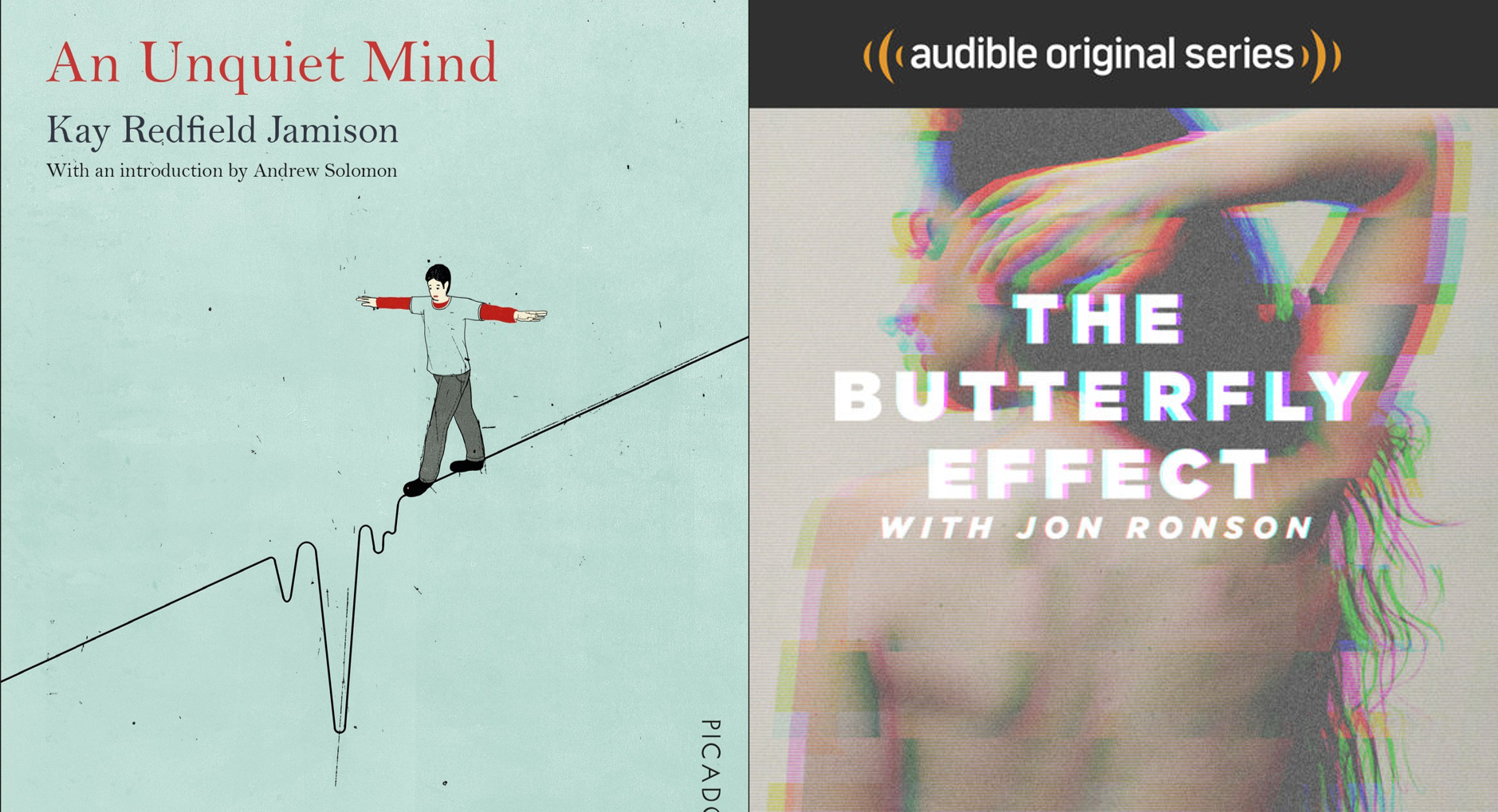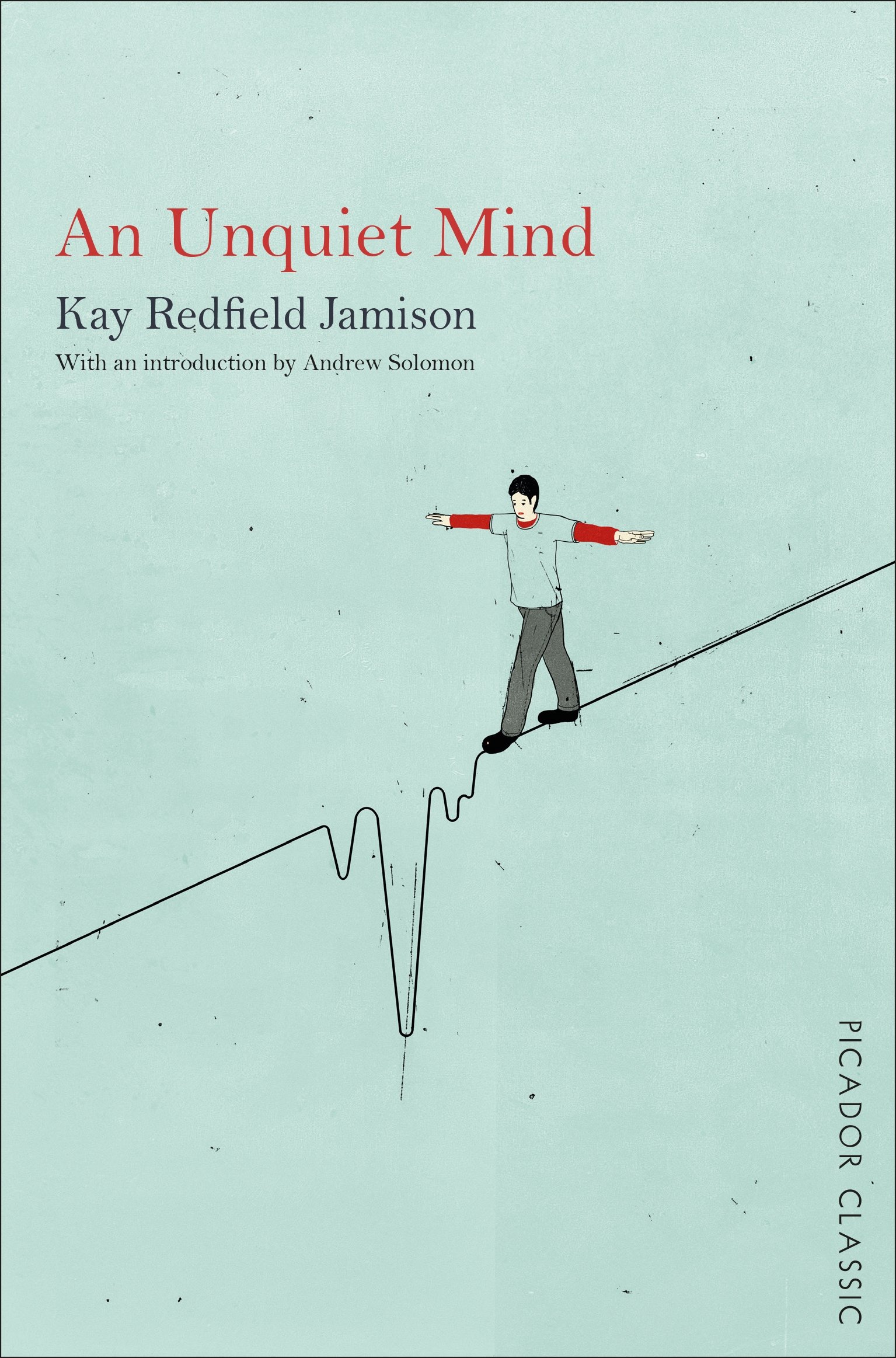February Reading Club: Bonus for people who don't like reading

Since it's my blog I can be as flexible with the rules as I like, so this week we're going to be listening and reading, rather than completely reading! This is also helpful considering the delay I've had in writing, owing to moving flats. We're feeling pretty seasonal with an item about, uh "interpersonal" topics, in time for February, and also for mental health, as February hosts the annual Time to Talk day.
The Butterfly Effect, by Jon Ronson

At work, we are often wading through poorly structured databases full of incomplete and questionably useful information. Data's dream state is the same as Marie Kondo's, though with more shitty metaphors about buckets and lakes. The whole point of data, and particularly Big Data, is to actually do something with it, and The Butterfly Effect traces the impact of someone getting to this situation and very much doing something with it. The first episode focuses on the origins and operations of Pornhub, the emerging global monopoly of electronic pornography. Pornhub's success lies in the same place as the FAANGs - it processes and analyses data to such a degree it has transformed the industry it operates in, very much catching it off guard, and the following episodes examine how that transformation has travelled. Pornhub are aware of the keen interest in their data - they have their own insights blog where they publish activity reports following newsworthy events, like the Superbowl or the recent US Government Shutdown, and annual in-depth analyses which I highly recommend reading. On the other side of the data coin, the series also includes a brief interlude into the Ashley Madison leak, a complete disaster for user data, viewed through the lens of what missing salts and hashes really mean in the lives of people.
Ronson's manner is not a million miles away from Louis Theroux in terms of being a gently inquiring style, which may not be for everyone. However, this topic involves people speaking about subjects that others will condemn them for, so an element of care is required. The best documentaries do as little to distort the voices of those in them as possible, which I think Ronson does achieve while keeping the wide range of voices and opinions coherent for the listener as a whole.
I recommend this because it took the threat of a big stick to make businesses and workers take data seriously, but that seems to be very much limited to a personal level. The consequences of everyone as grist for the mill are transforming the world we live in, and not always for the better. Data practitioners would do well to bear this in mind as the ethical responsibilities for these systems are still very diffuse, but tech workers are starting to recognise and act on the implications of their work.
An Unquiet Mind, by Kay Redfield Jamison

Jamison's memoir of life as a clinical psychologist managing her own bipolar disorder was written during a time where it was very much not cool or a good idea to admit that one had a mental health issue. It was a Catch-22 situation, where having the grasp of the situation to tell others meant you may well be fired (since you were now unreliable and a danger to others) and keeping it secret proved you were unreliable and a danger to others. Jamison's profession were no more kind or understanding of the issue than any other workplace, despite (or maybe because of) their positions on the front lines of mental health care, which loosely equated to being "fine" or being confined to something akin to a film which probably set our societies back pretty far in our perception of mental illness and how it is treated. When reading this I wasn't sure if I was surprised by this or not, having experienced first hand that sometimes assuming people should "know better" because of particular experiences they have had is very much not a guarantee that they will.
An Unquiet Mind is moving and personal account of someone who has had the time, care and skill to create an expression of their experience that others can relate to, which in such a situation, can be uniquely difficult. Early in the book, Jamison explains her struggles with lithium, the new treatment for the disorder during the 70s with unpleasant side effects. She follows a pattern familiar to many people with chronic illness (especially mental illness), holding onto the hope that it's not chronic - I took it, and I feel better, so I'm done now, right? No, this is how it's going to have to be going forward. Even a PhD and a lifetime in academia cannot rid someone of hope, in contrast to the fear of the alternative.
With time, Jamison comes to accept the whole lived experience as something inextricable from her person. Despite intoxicating mania and depressions of mortal peril, she writes that she wouldn't give up the experiences she has had. This is something that many people with mental health issues struggle with; while it is clear there are periods which are pathological, the experience makes an indelible mark on the mind, and coming to terms that <you> may be, or may be scarred, by something your friends, family and colleagues think of as sickness takes time to accept. This is something which took me two or three years to accept about myself, and there are still times where I don't, or don't want to.
Some readers might be thinking this isn't so much a "work" book like January, or indeed like subsequent months. However, I've placed it in the work section as you have/will work with someone with mental illness at some point in your life, and a little understanding goes a long way.